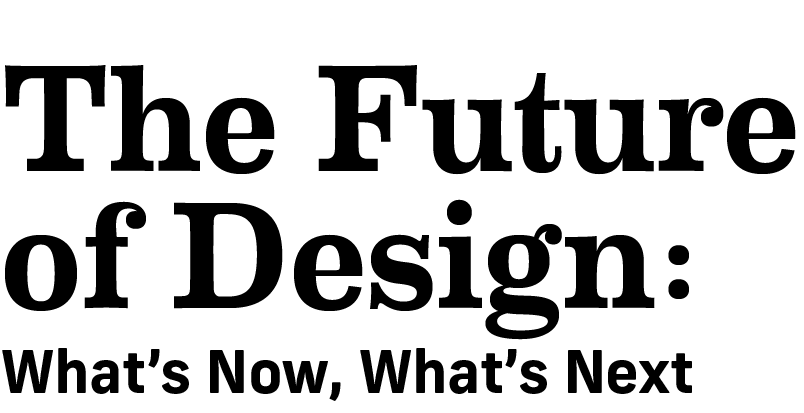The Center for Health Design’s annual Changemaker Award honors individuals or organizations that have demonstrated the ability to change the way healthcare facilities are designed and built and whose work has had broad impact on the advancement of healthcare design.
During the 2022 EFA Conference + Expo in Milwaukee in early April, The Center presented its 2022 Changemaker Award to Margaret Calkins, board chair of the IDEAS Institute and an internationally recognized leader in the field of environments for aging, especially those for residents with Alzheimer’s and other dementias.
Additionally, The Center for Health Design presented its Russ Coile Lifetime Achievement Award to Gerald Weisman and Uriel Cohen. The pair, who met in the 1970s as they were pursuing their graduate studies in architecture at the University of Michigan, went on later to cofound the Institute on Aging and Environment within the School of Architecture and Urban Planning at University of Wisconsin-Milwaukee (UMW). The institute promotes research, scholarship, and service to enhance the quality of life of seniors, particularly those with cognitive impairments, through improvements in their living environments.
During the presentation, Addie Abushousheh, research associate at The Center for Health Design, led a Q+A with Calkins, including asking Calkins to share her source of inspiration and how she became interested in supporting the needs of seniors. “I earned my undergraduate degree in psychology in the 1980s, and I wanted to continue on in environmental psychology,” Calkins said. “My oldest brother Peter, who is an architect, convinced me that in order to help architects design better buildings, I needed to understand the design process.”
This prompted Calkins to earn her master’s degree in architecture at UWM where she began a lifelong interest in environments for older adults, especially those living with Alzheimer’s and related forms of dementia. “While in graduate school, my class did a project to provide some design options to a local nursing home in Milwaukee that had been given $40,000 by the county,” she said. “At this time, there was little concern for the quality of life of the residents who would live behind this locked door—nothing about programming or specialized training for the staff.”
One of the class recommendations included having the facility create a new nursing station and two separate activity rooms for the residents with dementia. The county board ended up approving $400,000, instead of $40,000 that was originally budgeted for the project, to turn the proposed design into a reality. “At which point, the administrator had to hire an architectural firm to do the design, since none of us were licensed!,” Calkins said.
The project sparked Calkins’ interest in deepening an understanding of how healthcare facilities and senior residential communities can improve quality of life and the patient/resident experience. “I also learned that older people are a group of individuals who are challenged in so many different ways, and I saw where the design of the built environment could have such an impact—either positive or negative—on their ability to function and their quality of life,” she said. She decided to apply for an American Institute of Architects/American Hospital Association (AIA/AHA) graduate fellowship in health facilities design for her third year of school, and used the experience to focus on creating a design guide, “Design for Dementia.” Her work was among the first published in this area, with many other resources to follow over the years building on the information in Calkins’ book.
Throughout her career, Calkins has held a variety of positions, including heading two companies: IDEAS (Innovative Designs in Environments for an Aging Society) Consulting Inc. was incorporated when she started her PhD, and IDEAS Institute, a non-profit research institute, was incorporated in 1998. Additionally, she has held short stints in academia and philanthropy, including as an adjunct professor at University of Maryland-Baltimore County for two years, followed by Kent State University for two years before accepting a full-time position at Kent to head up the Elliot Program for Master of Healthcare Design. In 2015 she moved over to the world of philanthropy, heading up the Mayer-Rothschild Foundation, which is dedicated to person-centered care.
One of the things Calkins said she is most proud of over the years is the formation of meaningful professional relationships across many fields. “I have had some wonderful opportunities. I’ve worked hard. But this is not a field for one person,” she continued. “This is a field for a team, for a whole family of professionals who care deeply. This is the best group of professionals that I have ever had the pleasure to work with.”
She said her relationships are part of the reason why she stayed in this field—and what continues to inspire her. “I love the people who love working with older adults—and we do it because we have the passion. Keep that flame burning because that’s what will advance the field.”
In closing, Abushousheh asked Calkins what’s next. “Continuing with the research, it was my first love,” she said. Specifically, she’s involved in a five-year project on wayfinding, looking at strategies in larger retirement communities as well as smaller one-story nursing homes. Calkins said she’s also working with Migette Kaup, professor of interior design at Kansas State, on developing an Environmental Audit Screening Evaluation (EASE) tool, “which is geared around the household design and concept as being sort of the gold standard of what we should be striving for now,” she said. “You can’t do good environmental research if you don’t have good environmental assessment tools.”









